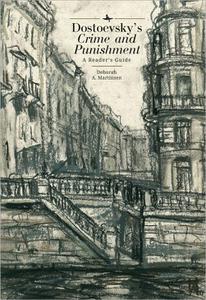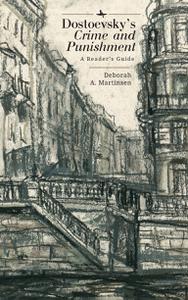- Книги / Аудиокниги
- 27-03-2023, 01:39
- 148
- 0
- voska89

Free Download The Eternal Husband by Fyodor Dostoevsky
English | MP3@192 kbps | 5h 42m | 470.9 MB
'The Eternal Husband' is a tragicomic novella by Fyodor Dostoevsky about Trusotsky, a widower who discovers that his wife had an affair with an old friend, Velchaninov. The story follows Trusotsky and Velchaninov as they embark on a misadventure to find Trusotsky a new wife while the tension between them grows to a violent climax. 'The Eternal Husband' is a critically acclaimed story teeming with romance, betrayal, and death. Dostoevsky examines the role of women in society in this tale, as the female characters are at once both repressed by society but hold power over men due to their charm and apparent virtue. This story portrays corrupt characters exploring an equally corrupt world in which no one is clean, but Dostoevsky's incredible character work creates sympathy for those perhaps undeserving in a way that only he can. This classic novella is both ironic and melancholy and is recommended for fans of Samuel Beckett or Russian literature in general.
Полная новость
- Книги
- 20-02-2023, 07:46
- 120
- 0
- voska89

Dostoevsky's "Crime and Punishment": A Reader's Guide (Cultural Syllabus) by Deborah A. Martinsen
English | February 22, 2022 | ISBN: 1644697831, 164469784X | True PDF | 134 pages | 5.9 MB
Crime and Punishment: A Reader's Guide focuses on narrative strategy, psychology, and ideology. Martinsen demonstrates how Dostoevsky first plunges the reader into Raskolnikov's fevered brain, creating sympathy for him, and she explains why most readers root for him to get away from the scene of the crime.
Полная новость

Dostoevsky's "Crime and Punishment": A Reader's Guide (Cultural Syllabus) by Deborah A. Martinsen
English | February 22nd, 2022 | ISBN: 164469784X, 1644697831 | 134 pages | True EPUB | 5.43 MB
Crime and Punishment: A Reader's Guide focuses on narrative strategy, psychology, and ideology. Martinsen demonstrates how Dostoevsky first plunges the reader into Raskolnikov's fevered brain, creating sympathy for him, and she explains why most readers root for him to get away from the scene of the crime. Dostoevsky subsequently provides outsider perspectives on Raskolnikov's thinking, effecting a conversion in reader sympathy. By examining the multiple justifications for murder Raskolnikov gives as he confesses to Sonya, Dostoevsky debunks rationality-based theories. Finally, the question of why Raskolnikov and others, including the reader, focus on the murder of the pawnbroker and forget the unintended murder of Lizaveta reveals a narrative strategy based on shame and guilt.
Полная новость
